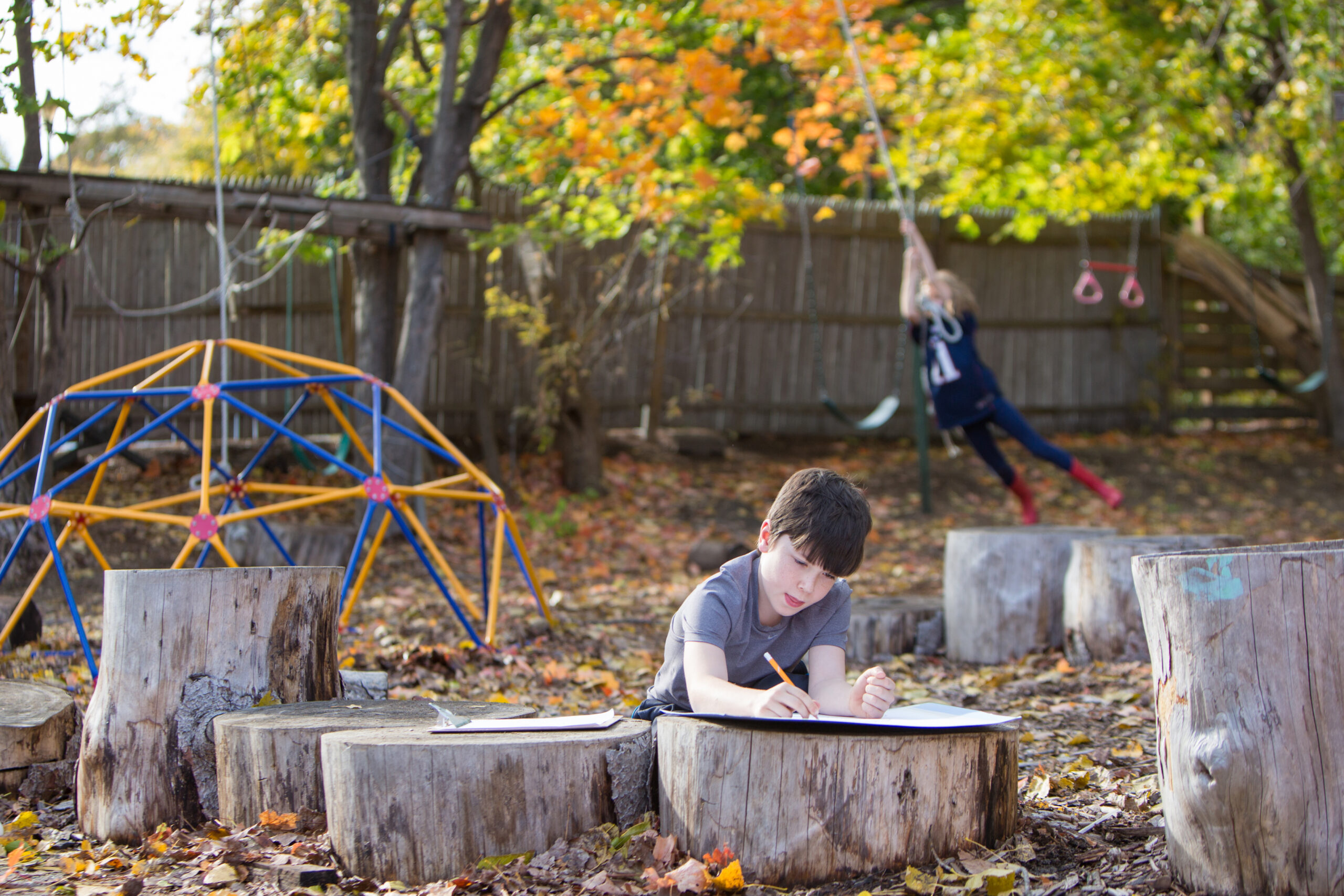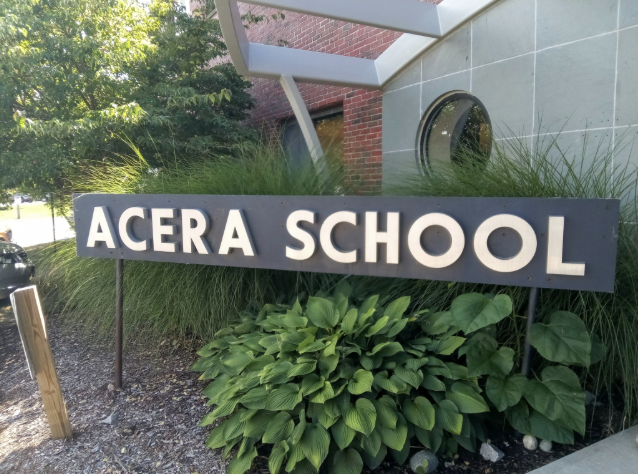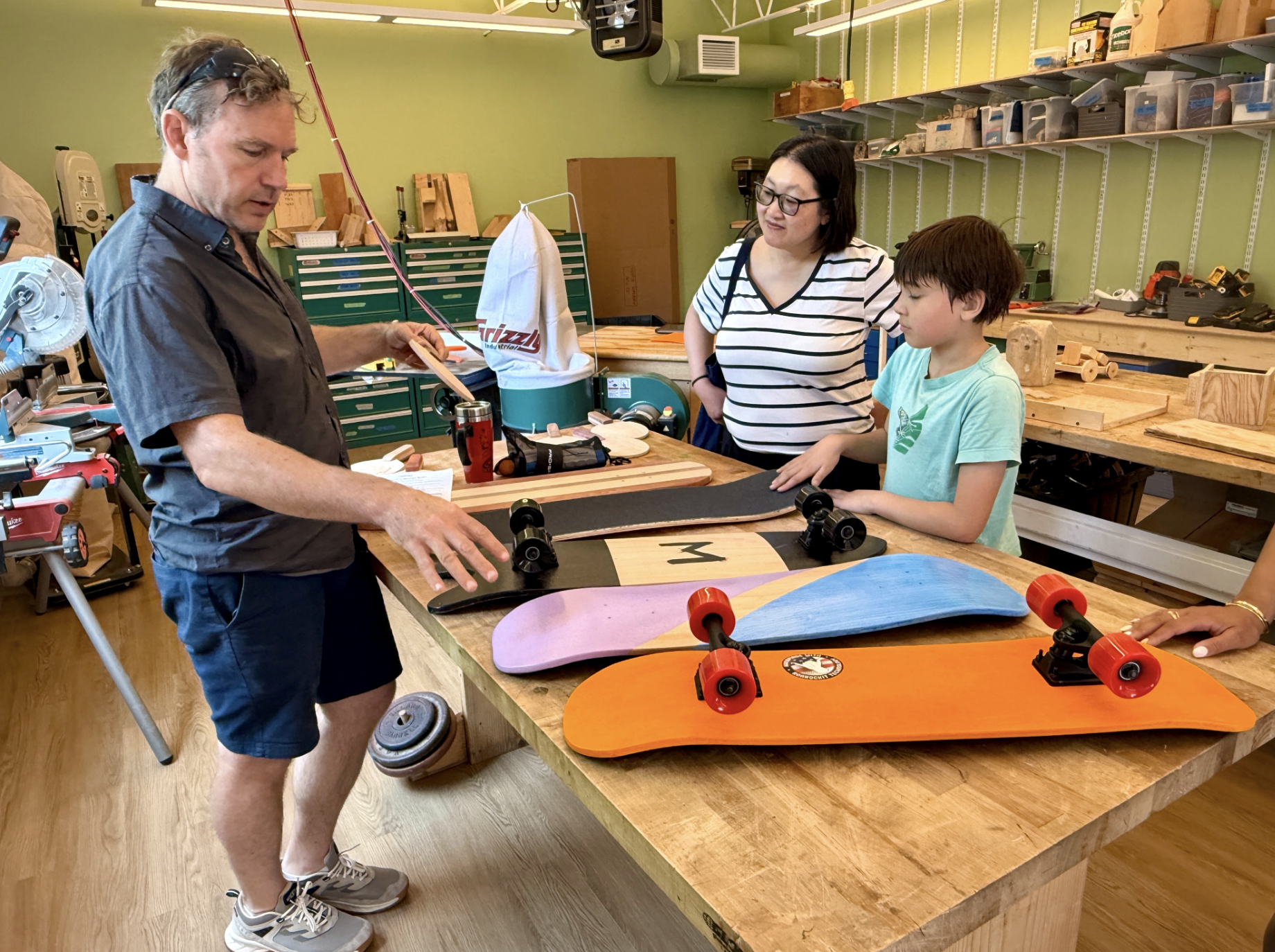May 2025--As we close out the school year, we do so with full hearts—filled with…
Don’t Let School Get in the Way of a Great Education

By Dr. Heather J. Pinedo-Burns
When my children were babies, I remember scrolling through Instagram and stumbling upon a corner of the internet filled by homeschooling parents. Their photos pulled me in: children sprawled in the grass sketching butterflies, curled up with stacks of books, or investigating pH levels through art and science, or knee-deep in creeks with nets in hand, searching for minnows. These children were learning the way John Dewey envisioned: with joy, wonder, and full immersion in the world around them.
As both a parent and an educator, I wanted that same spark for my children – both at home and at school. And I had to ask: Why shouldn’t all schools feel like this? Why shouldn’t classrooms brim with curiosity, choice, and delight, rather than with worksheets, scantrons and checklists?
Engagement & Passion
The truth is, it can. When teachers bring their passions into the classroom, learning transforms. At Acera, our teachers teach with passion. A class on astronomy includes an evening stargazing trip. Guided by a history enthusiast, students dive into the Constitution and examine the foundations of democracy. Woodworking isn’t about measuring and cutting to follow a plan—it’s a guided opportunity by an engineer devoted to the craft.
When students see adults model wonder, they learn that curiosity doesn’t end at graduation—it is a lifelong pursuit. Passion transforms “topics to cover” into experiences to savor.
Choice
Children thrive when given meaningful choices. At Acera, students have agency: how to show their understanding, which topics to pursue more deeply, even which elective classes to take. From the earliest grades, children should have opportunities to decide how to show what they know, what to explore more deeply.
Choice is not indulgence—it’s ownership. It means the child who loves robotics gets to build, while the one who loves painting finds their flow in the studio. It also means students have a say in how they explore and represent their learning. That’s the difference between doing work because students have to and doing work because they want to. And it’s in that space that real learning takes root. As John Dewey reminds us, “Give the pupils something to do, not something to learn.”
Joyful Learning
Progressive education also insists on joy. Joy is not about ease or constant fun—it is about deep engagement. Sensory, full-bodied, wonder-filled. At the end of the day, students should be tired not from sitting still, but from living fully into their learning.
The philosopher Maxine Greene, who shaped much of my own thinking, wrote:
“We must move beyond schooling to the wider domains of education… We want young people to become critical, self-reflective, active learners. We want them to have something to say about the way things might be if they were otherwise.”
That is what progressive education seeks: not compliance, but curiosity. Not memorization, but imagination. Joy in learning is not a luxury—it is the foundation for creativity, resilience, and lifelong growth.
What if My Child’s School Doesn’t Look Like This?
You may be reading this and thinking: This isn’t what my child’s school feels like. And that’s okay. You still have power to shape your child’s experience, cultivating joy and wonder:
- Volunteer & Share Your Passions. If your child is learning about ecosystems and you’re a gardener, offer to share your expertise. If you’re an ornithologist, host a family bird watching walk. Schools are richer when parents contribute their real-world knowledge.
- Engage in Citizen Science. Track firefly sightings, measure leaves for climate studies, or help rescue cold-stunned turtles on New England beaches. Real-world science shows children that their learning matters, and these experiences connect learning to purpose.
- Follow Your Child’s Lead. Notice what excites them—whether it’s dinosaurs, baking, or coding—and create space for that passion at home.
- Model Wonder. Ask questions aloud. Try new things. Let your children see that curiosity is not just for kids.
A Closing Thought
At the start of summer vacation, when children cry out, “No more school for how long??”—what if they aren’t celebrating escape, but pausing after something meaningful? What if they are proud of their learning, grateful for the joy it brought, and eager for what’s next?
As the nights grow cooler and the new school year begins, may your child’s dreams be filled with anticipation—not dread—for the journey ahead. And may we, as parents and educators, never forget: the best education doesn’t happen to children. It happens with them, wherever curiosity, choice, and wonder are allowed to lead the way.


